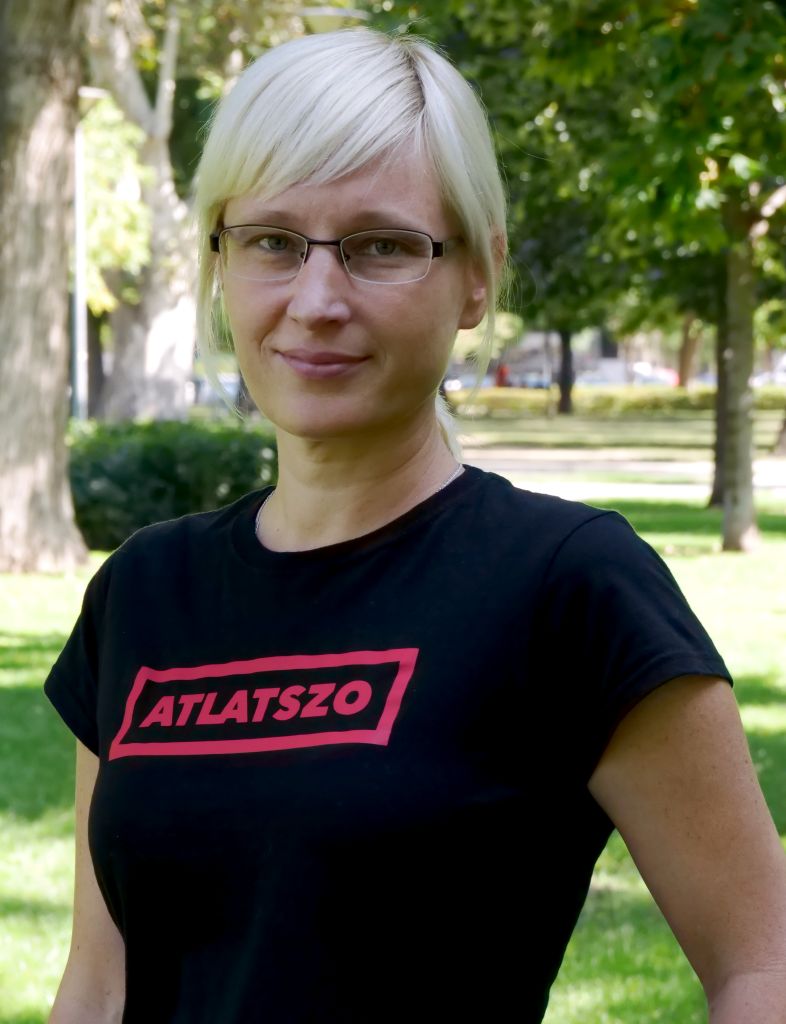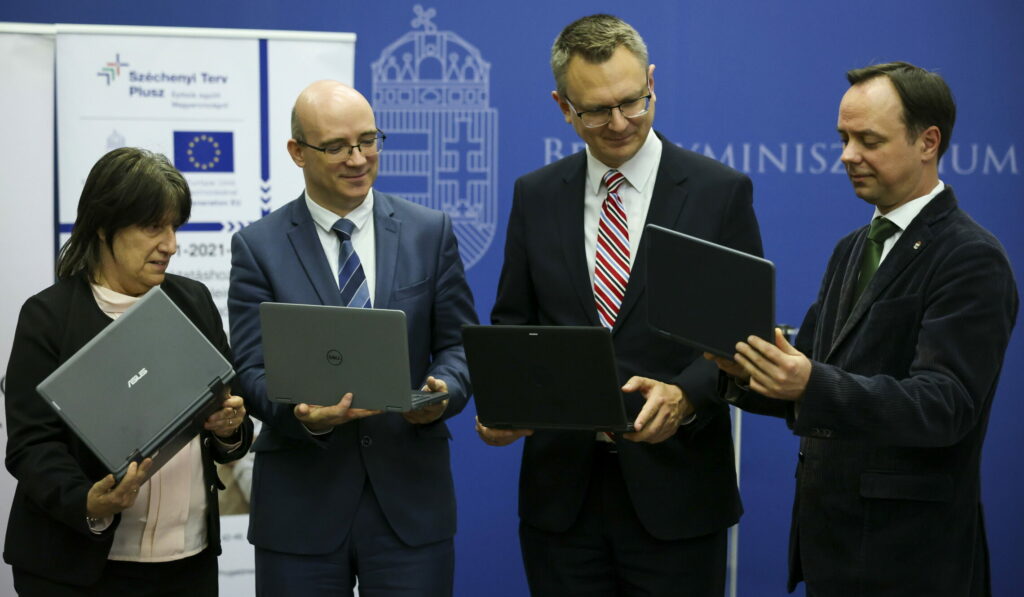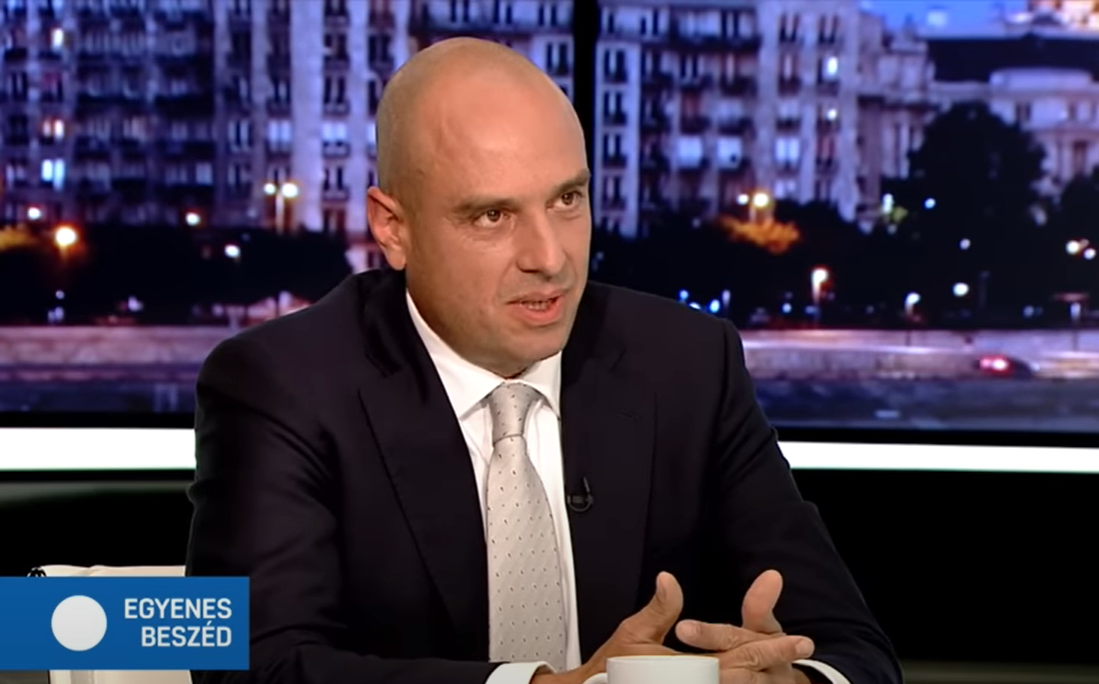The https://english.atlatszo.hu use cookies to track and profile customers such as action tags and pixel tracking on our website to assist our marketing. On our website we use technical, analytical, marketing and preference cookies. These are necessary for our site to work properly and to give us inforamation about how our site is used. See Cookies Policy
Public sector institutions lose out in centralized IT procurements
Based on the tenders we examined, state IT procurements have not only not become cheaper since the establishment of the Digital Government Agency (DKÜ) – prices have risen. The price of many products is significantly higher than the retail price. At best, it matches the retail price – just. Furthermore, suspicions of cartel strategies in the framework contract-signing process have arisen. The DKÜ did not provide a substantive response to our inquiries, while the government claims that the price fixed in individual contracts cannot be the sole metric. Transparency International Hungary will initiate proceedings with the Competition Authority due to our article’s findings.
Hopes were high that centralized procurement would cut inefficiencies and waste when the DKÜ was established. Hopes were dashed quickly. IT procurements haven’t gotten any cheaper. They’ve gotten more expensive. State institutions’ spending, as a result, has also continued to rise.

Concrete numbers are hard to come by – there are no government statements about the incredible savings achieved a grâce de the agency. Based on the tenders examined by Átlátszó, in a significant number of cases, the price of products available through the DKÜ is either considerably higher than in retail or just about matches retail prices.
A brief history and how-to of the DKÜ
The centralized tech procurement system was established by Government Decree 301/2018. (XII. 27.). The DKÜ PLC is responsible for the coordination of IT procurements
Everything – truly everything – goes through them. This company is responsible for the coordination of IT procurements for all budgetary institutions under government control and for all state-owned companies. Nary a monitor is bought without the DKÜ’s approval. The DKÜ is also responsible for issuing large-scale framework procurement tenders to meet the IT needs of the public sector.
The official purpose, stated on their website, is to “unify IT procurements to make state IT expenditures more transparent and organized, and through planned and thoughtful procurements, improve the efficiency of state companies, public administration, or public utility services.”
The government saw no one better fit for the job than the Prime Minister’s Chief of Staff, who currently happens to be the ubiquitous Antal Rogán.
A state organization wants to purchase hardware or software. Not so fast – the DKÜ must first check whether it can be procured through their framework tender. If it is available, the institution must order the product from there. A similar system is in place for the centralized communications procurement system. The system has surprisingly strong echoes of a sort of nanny state for a government that has so vocally maligned left-wing policies.
In response to demand, the DKÜ issues a framework procurement tender and determines a target number of companies it wants to contract – this usually ranges from one to ten companies.
For companies providing IT solutions to the state, the stakes are high – if they fail to secure a contract, they risk exclusion from the state’s tech market for the next two to four years. Companies often form consortia – more players at the table even with the limited seats. Crowded chairs, though.
The nerve-wracking state of being doesn’t end there. Securing a place in the framework still does not guarantee any orders for a company. This decision is – as all decisions are – in the hands of the DKÜ.
State organizations can place orders with companies in two ways.
If the DKÜ allows it and the procurement amount does not exceed the threshold set by the DKÜ, the state organization can simply order a tech product from the company offering the lowest price on the price list. The value limit ranges from 15 to 84 million forints, in line with national and EU public procurement thresholds.
Alternatively, a public institution can reopen the competition. They can request new prices for select products from the companies in the framework, and the companies are required to submit offers.
In theory, the system is uncharacteristically efficient and ensures competition. In practice, the system characteristically fails to live up to this billing.
Is it me, or does it smell like cartel behaviour
Market actors appear to be colluding – or at least coordinating – in a way that belies free market principle. It appears that bidders are pre-arranging the conditions of their bids before submitting for public procurement tenders. This would defeat the DKÜ’s requirement that the cheapest product is ordered in direct procurement cases, because the bidders could keep prices artificially high.
It should be noted that there are no recordings or photographs to indisputably prove collusion. Public data from currently active framework contracts issued by the DKÜ –
valued at 2.9 trillion forints in total – suggests, however, that something is afoot.
Out of the 46 active framework tenders, the number of bids was equal to or less than the framework number set by the DKÜ in 28 cases.
In 21 of these cases, the number of bids was identical to the framework number. These tenders are highlighted yellow.
Some consortia include up to ten companies. A total of 50 companies became contracting partners. It is convenient – and almost hard to believe – that they’ve managed to group themselves into exactly the number of teams as there were available spots.
They’ve managed to do this 21 times.
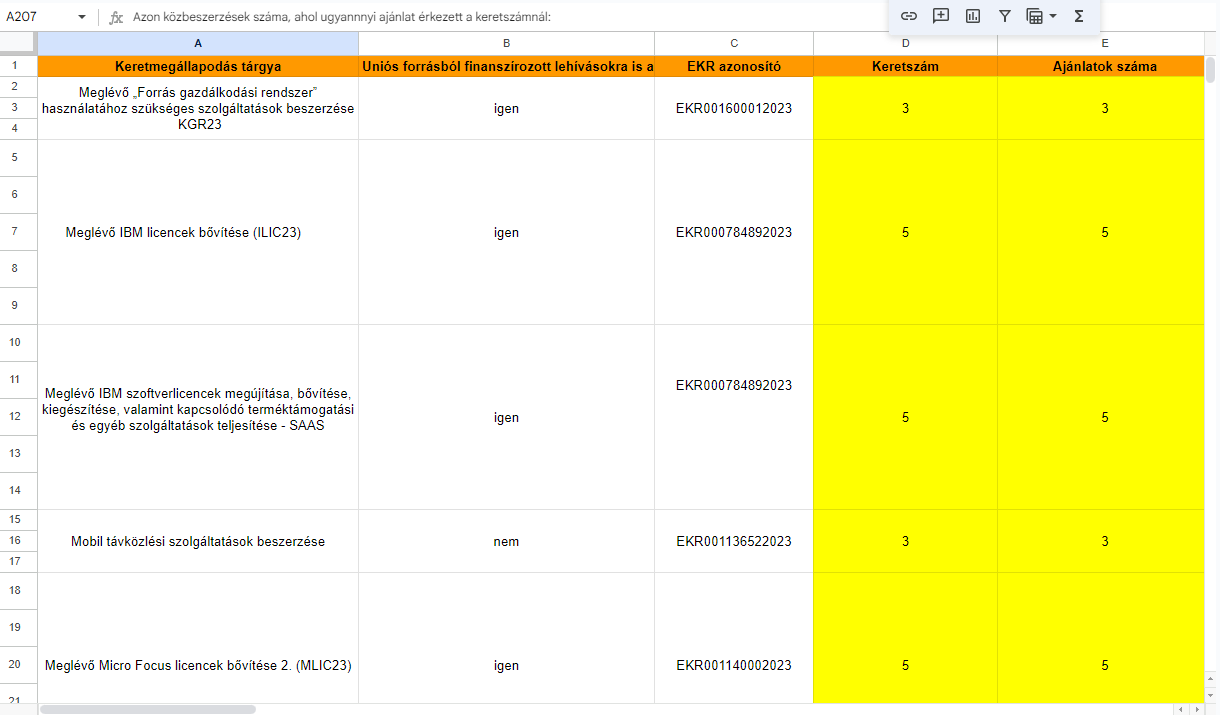
In 21 cases, the number of bids submitted was exactly the same as the number of allocations. Source: ekr.gov.hu/Atlatszo collection
In seven tenders, highlighted in orange, fewer bids were submitted than the framework number. This means every party is guaranteed a spot in the framework. Good thing, too – these tenders have a total framework value of 1.76 billion forints.
A second suspected layer of collusion involves participants coordinating their price lists and thus dividing the market. As a result, they do not need to offer competitive prices in direct orders, and the entire state sector will continue to order certain products from them, as the participants prearrange who will be the cheapest for which product.

Parents receive a notebook for their child at the Bolyai János High School in Salgótarján on 15 February 2022. MTI/Peter Komka
Competitive re-openings, open to coordinated bidding
Coordinated bidding may also occur during competitive re-openings. However, these cases often result in real competition. According to DKÜ’s data, competitive re-openings have led to an average of 26.44% savings compared to list prices – slightly higher than the 25% savings achieved on average for non-reopened purchases.
This also suggests that state institutions are acquiring IT products and services at substantially higher prices for a significant portion of their direct orders when compared to prices from competitive re-openings.
This is also true when compared to standard market prices.
State Institutions Could Be Losing Up to 100,000 Forints per Item
Take as an example the following.
The University of Debrecen sought to procure desktop computers and monitors, including a request for 130 Dell 24″ P2422H monitors. The initial quoted list price was a net HUF 101,541 (gross HUF 128,957) per unit. After reopening the competition, the cheapest bid dropped to net HUF 56,965 HUF (gross HUF 72,345 HUF) per unit. Despite this, the same model could be found in retail for as low as gross HUF 60,000 HUF.
If the University of Debrecen had purchased the monitors directly from an IT store or online, they would have paid nearly the same price as they did through the DKÜ tender process. If the university had simply ordered the items at the original price without reopening the competition, they would have paid almost double the amount they could have found in a regular store.
It is not uncommon to see products marked up by almost double compared to market prices, and we haven’t found a single instance where a product was cheaper through central procurement than it was in retail.
Unlike in tenders without re-openings, in tenders where products could only be ordered after competitive re-opening, nine out of 13 tenders, highlighted in blue, received more bids than the framework number.
This suggests that the mandatory competition in the ordering phase may have made coordination unnecessary during the framework procurement application process.
The only exceptions to this pattern are tenders where the DKÜ announced a single winner, highlighted in grey. In these cases, there was no point in coordination since the winner took everything. As expected, these tenders also featured meaningful competition, with an average of 4.2 bids submitted per tender.
Savings Could Not Be Verified
We contacted the DKÜ for clarification. We first requested details on the savings achieved via competitive re-openings compared to list prices for each framework agreement.
They cited the 2011 CXII Act on Information Self-Determination and Freedom of Information, stating that the public body is not obligated to fulfil a data request if doing so would require generating new data based on a comparison of existing public interest information.
This response suggests that the DKÜ does not actually have detailed data on how much state institutions saved with specific procurements. When we asked for clarification on the figures provided to the Prime Minister’s Office and their opinion on suspicions of collusion, they said that
all parties involved in the procurement procedures – including DKÜ PLC, the concerned organizations, and the bidders involved in the framework agreements – act in accordance with public procurement regulations and the rules of the framework agreements.
A procurement expert at Átlátszó pointed out that, even if the DKÜ acts in accordance with legal regulations, the extreme degree of centralization in their system inadvertently leaves procurements vulnerable to collusion.
“Even if we assume that the DKÜ did not intentionally design the system this way, it is still their duty to identify suspicious or questionable bidder behaviour and report it to the relevant authorities, if necessary,” they said. “Responsible management of public funds would require them to monitor potential overpricing by winners.”
Thus spoke the government
The Integrity Authority has prioritized investigating centralized procurement in both its 2022 and 2023 reports.
The Authority noted that there are both arguments for and against centralization. The benefits – economies of scale, better prices, efficiency, a flexible procurement model, the concentration of expertise.
The dangers – a concentrated market, restricted competition, and limitation for small and medium-sized enterprises’ access to the market.
The Authority made several recommendations to the government. Their response – lacklustre.
The Hungarian government argues that the price set in individual contracts resulting from centralized procurement shouldn’t be the only benchmark to measure the system’s success.
Price, after all, does not reflect the amount of time saved or the money saved by replacing additional services with the central procurement organization.
Money isn’t everything. Money can’t buy you happiness. Money can’t buy you love.
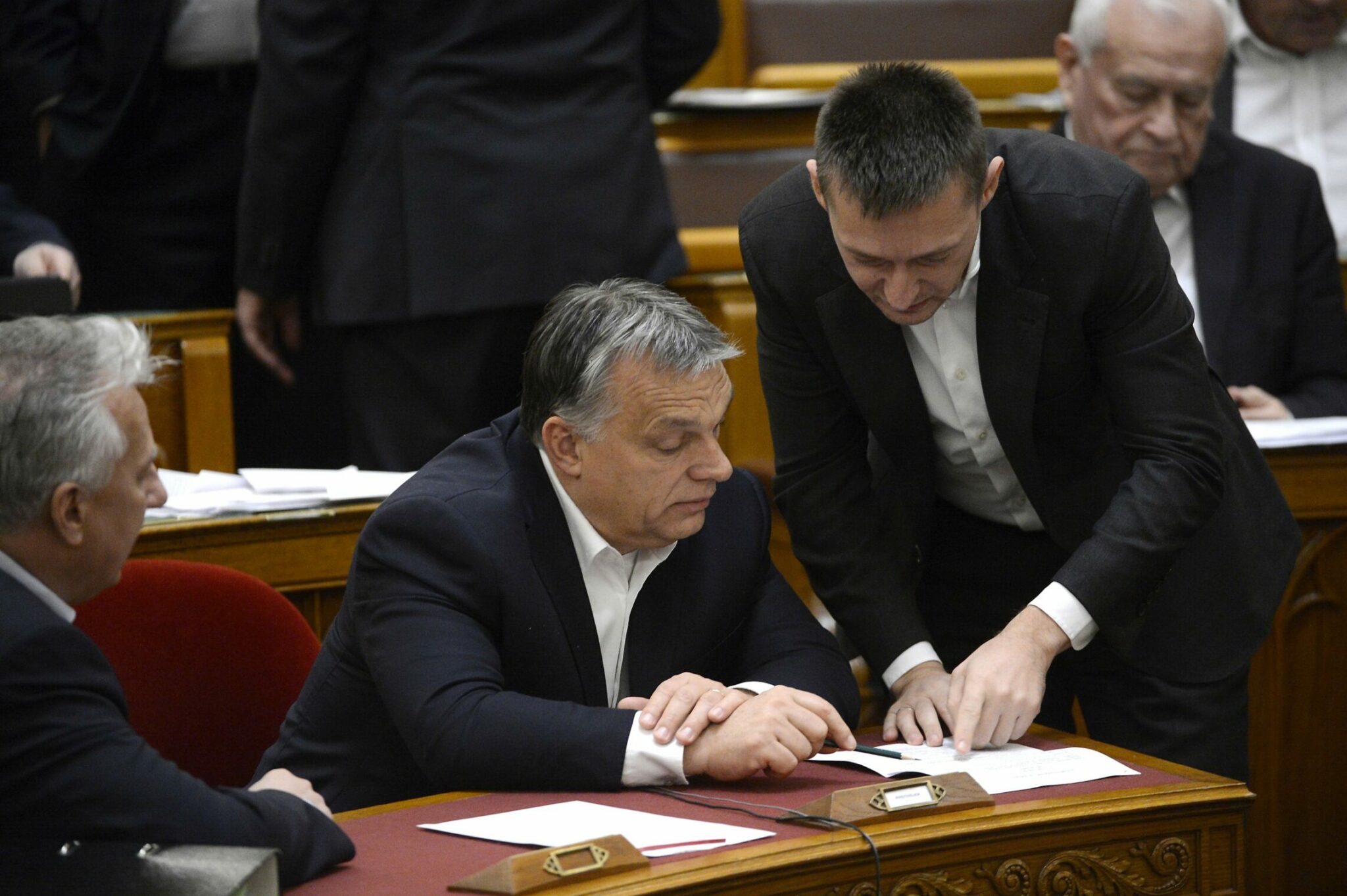
Prime Minister Viktor Orbán and Antal Rogán, Minister in charge of the Prime Minister’s Office, who exercises the ownership rights of DKÜ Zrt. MTI Photo by Lajos Soós
Experts and buyers less than convinced
The Integrity Authority believes that, actually, the efficiency of these systems should be measurable. The OECD seems to have no problem with this – in their analysis of EU centralized procurement systems, one of the key performance indicators is the savings achieved through centralized procurement.
In Hungary, only 31% of respondents believe that the prices in framework agreements are the same or better than those available outside of the agreements.
Of those surveyed, 90% of procurement experts – contracting authorities, advisors, so on – believe that centralized procurement doesn’t result in cheaper procurement than market prices.
When asked about the general efficiency of centralized procurement, 78% stated that the system is inefficient.
The Integrity Authority also requested data from central procurement organizations to determine whether there had been any improvement in assessing the efficiency of centralized procurement systems and comparing framework agreement prices to market prices.
The DKÜ responded that, while the minister responsible for procurement had initiated consultations with central procurement organizations, no methodology had been developed for comparing list prices in framework agreements with the prices achieved through competitive procedures or with market prices.
So, no one really knows what is being saved and what is being lost. Rest assured, this is fine – as the government expressed, monetary efficiency is secondary to vibes.
The Integrity Authority made several recommendations regarding centralized procurement, such as ending mandatory participation. They also advocate for revising regulations governing central procurement organizations to promote more genuine competition in framework agreements.
The Authority also stated that the framework agreements can facilitate quick and efficient procurement – when properly managed. Alternatively, they can limit competition, especially when the set sizes and durations are inadequate.
Calls for Investigation
Transparency International Hungary has also raised concerns about the long-term decline in competition in the procurement market due to framework agreements like those of the DKÜ. Transparency International Hungary intends to initiate a competition authority investigation into the matter.
Translated by Vanda Mayer. The original, more detailed Hungarian version of this story was written by Eszter Katus and can be found here.
Share:
Your support matters. Your donation helps us to uncover the truth.
- PayPal
- Bank transfer
- Patreon
- Benevity
Support our work with a PayPal donation to the Átlátszónet Foundation! Thank you.
Support our work by bank transfer to the account of the Átlátszónet Foundation. Please add in the comments: “Donation”
Beneficiary: Átlátszónet Alapítvány, bank name and address: Raiffeisen Bank, H-1054 Budapest, Akadémia utca 6.
EUR: IBAN HU36 1201 1265 0142 5189 0040 0002
USD: IBAN HU36 1201 1265 0142 5189 0050 0009
HUF: IBAN HU78 1201 1265 0142 5189 0030 0005
SWIFT: UBRTHUHB
Be a follower on Patreon
Support us on Benevity!
